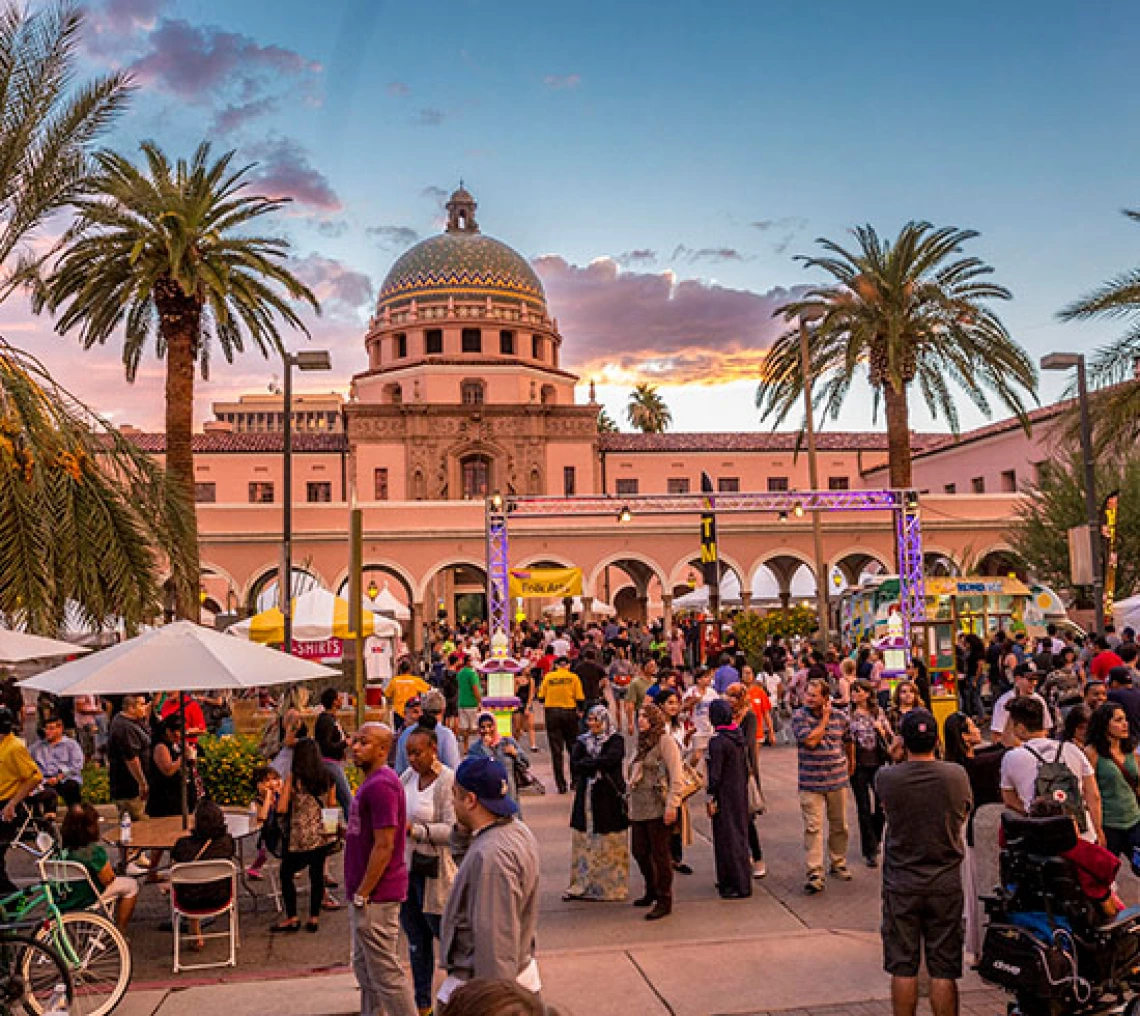Much More Than "Meet Yourself"

By Elizabeth Labiner
Southwest Folklife Alliance (SFA) is best known by most Tucsonans for their role in the enormously popular Tucson Meet Yourself festival -- also lovingly called “Tucson Eat Yourself” as a nod to the sixty food vendors representing cultures and gastronomic traditions from around the globe. The organizers of Tucson Meet Yourself describe the event as
an annual celebration of the living traditional arts of Southern Arizona’s and Northern Mexico’s diverse ethnic and folk communities. Each October, the three-day event features hundreds of artisans, cooks, dancers, musicians, and special exhibits that celebrate and honor beauty in all its diverse, informal, and everyday forms.
Creating and managing such an expansive festival is no small feat. Over one hundred thousand people attend Tucson Meet Yourself each year, and the number of performers, artists, and vendors increases every year. Dr. Maribel Alvarez is the Executive Director of the SFA, as well as a professor in the School of Anthropology and a Public Folklorist at the U of A’s Southwest Center. Alvarez emphasizes that Tucson Meet Yourself and all of the SFA’s other work is a group effort, noting, “The word collaboration is so intrinsic and so embedded in everything we do; it’s the reason for our existence.”
While Tucson Meet Yourself began in 1974, the Southwest Folklife Alliance only came into existence in its current form three years ago. The SFA was born, Alvarez says, out of a desire to put the festival organizers’ knowledge, skills, and expertise to work in areas of community development. The new projects taken on by the SFA include work on health, end of life, food security and food waste, education, cultural heritage, and documentation of practices and beliefs. Additionally, Alvarez notes, the new name made sense as the group expanded their reach across other communities in the southwest.
The SFA’s educational programs are another particularly exciting aspect of the collaboration. Ethnographic Field Schools offer training in the basic skills of cultural analysis and documentation, using the toolbox of ethnography as practiced by anthropologists and folklorists. The program is specifically geared for adult learners interested in cultural documentation and enhancing “sense of place.”
The various field schools focus on hands-on learning about traditional foods, ways of life, and artistic expressions of everyday life. As part of this, the SFA organizes visits with artisans and tradition-bearers in their workshops and homes, and then coaches participants in writing and basic photo-documentation techniques, as well as strategies for publishing work on blogs, in newsletters, and in community publications. This latter aspect ensures that the learning and engagement continue to spread through the participants’ communities, supporting and sustaining the cultural transmission.
Respect and understanding are at the core of successful collaboration, as well as successful learning, says Alvarez. “It’s not about thinking that your answer is better than one from anybody else,” Alvarez concludes, “it’s about everybody authentically contributing their learning and their knowledge.”
To learn more about Southwest Folklife Alliance, including their programs and events, visit their website at southwestfolklife.org/.
To learn more about Tucson Meet Yourself, including ways to support the festival, visit tucsonmeetyourself.org/.
Visit the Graduate Center website to see the April 2017 “Building Coalitions and Celebrating Culture: The Southwest Folklife Alliance” lecture, as well as to view the other lectures in the 2017 Interdisciplinary Collaborations Lecture Series.

